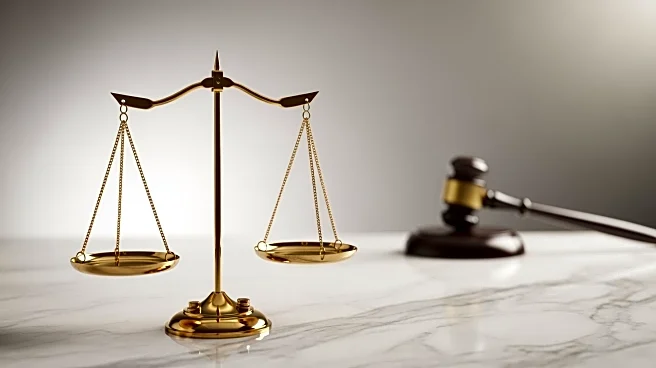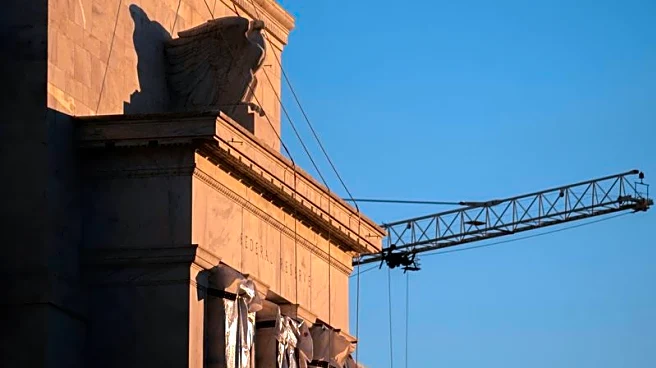What's Happening?
The independence of the Federal Reserve is under scrutiny as the Supreme Court considers a case that could allow a president to remove a Federal Reserve governor at will, challenging the current statutory protections that permit dismissal only 'for cause.'
This potential shift could disrupt over a century of American monetary policy, which has traditionally insulated the Federal Reserve from political influence to maintain stable prices and sound money. Historical examples, such as Weimar Germany's hyperinflation and the 1970s U.S. inflation under President Nixon, illustrate the risks of political interference in monetary policy. The Federal Reserve's independence has been credited with fostering periods of economic stability, such as the 'nice' period from the mid-1980s to 2007.
Why It's Important?
The potential erosion of the Federal Reserve's independence could have significant implications for the U.S. economy. If the Supreme Court rules in favor of allowing political dismissals of Federal Reserve governors, it could lead to increased inflation and undermine the credibility of U.S. monetary policy. This could result in higher borrowing costs and a weaker dollar, affecting both domestic and international economic stability. The Federal Reserve's ability to maintain price stability and manage inflation is crucial for economic growth, and any perceived loss of independence could shake investor confidence and lead to economic volatility.
What's Next?
The Supreme Court's decision will be pivotal in determining the future of the Federal Reserve's independence. If the court rules against the current protections, it could set a precedent for increased political influence over monetary policy. This may prompt Congress to revisit the Federal Reserve Act to reinforce the institution's independence. Additionally, the Federal Reserve may need to enhance its transparency and communication strategies to reassure markets and the public of its commitment to maintaining price stability and economic growth.
Beyond the Headlines
The debate over the Federal Reserve's independence also touches on broader issues of governance and the balance of power between political institutions and independent agencies. The outcome of this case could influence how other independent agencies are perceived and managed, potentially leading to a reevaluation of the role of political influence in economic and regulatory policy. The historical context of the Federal Reserve's creation as a compromise between private and government interests underscores the ongoing tension between political control and economic stability.















